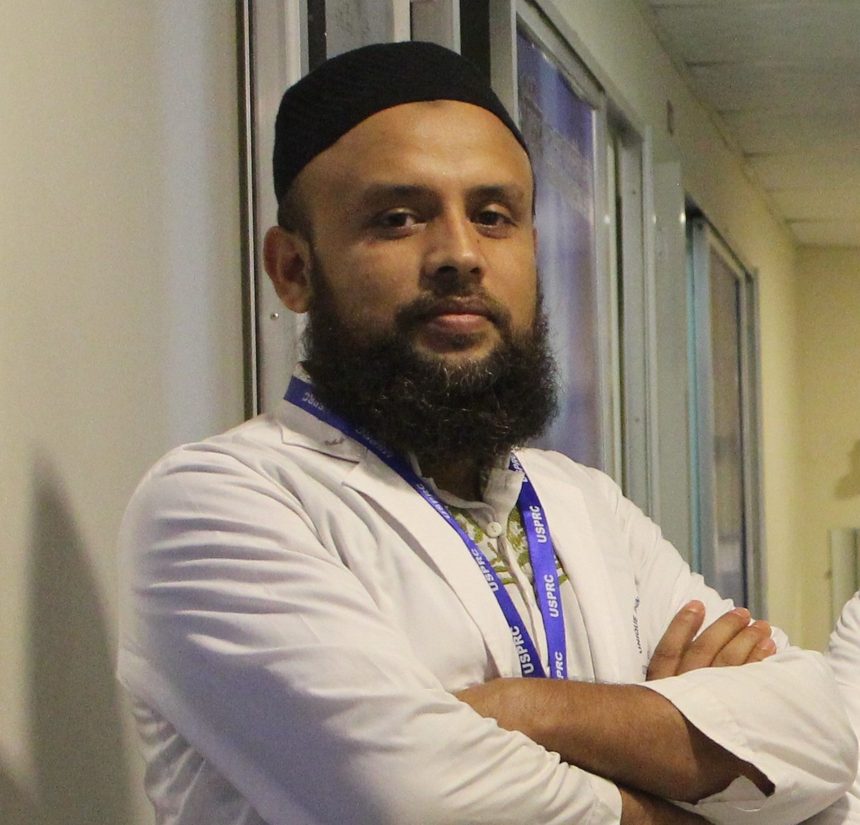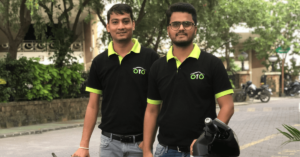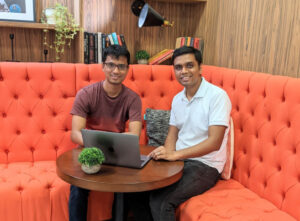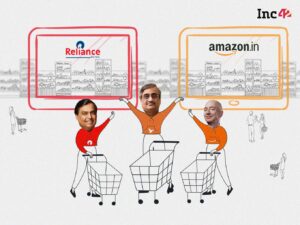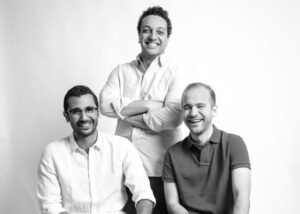Dr. Faruqul Islam is the Founder of Unique Pain and Paralysis Centre, a Dhaka-based pain management and rehabilitation center that has built an excellent reputation in the space of physiotherapy within a short period of time with excellent patient service and quality care. Mr. Islam started his career at CRP where he worked in several senior positions before leaving CRP in 2017 to build UPPC.
Physiotherapy continues to gain popularity in medical services across markets. In Bangladesh, there has been a growing demand for pain management and rehabilitation services over the years. As the population ages, the demand is likely to grow further.
In this wide-ranging interview with Fahim Bin Faruque, Mr. Islam talks about his path to what he is doing today, how he has grown UPPC from a small operation to a full-fledged physical therapy center, the state of UPPC today, and ambition going forward, shares his takes on building healthcare enterprises, the rise of alternative medicines, jobs of a founder, and reflects on the lessons he has learned from his journey, and much, much more.
Interview by Fahim Bin Faruque, composed by Tithi Chowdhury and edited by Ruhul Kader.
Future Startup: Could you please tell us about your background and your path to what you’re doing today?
Dr. Faruqul Islam: I was born in Faridgonj, Chandpur, and spent most of my early years in my village. I started my formal education in Madrasa. In 2000, I got admitted into BHPI (Bangladesh Health Professional Institute), CRP Dhaka, to pursue a bachelor’s in physiotherapy that eventually led to what I’m doing today. The admission test was competitive. Thanks to Allah that I passed and got selected for the program. I did my Bachelor in Physical Therapy under the Faculty of Medicine of Dhaka University. After completing my bachelor’s program, I did an internship and then started my professional life.
Meanwhile, I completed my master’s in Physiotherapy and another master’s in public health. To enhance my professional skills and capacity, I completed PGT-BT (UK) and Manual Therapy-Joint Pain (India).
Future Startup: Where and how did you start your professional life?
Dr. Faruqul Islam: I graduated in 2005 and started my career the same year at CRP, Mirpur with an ambition to serve people. I was appointed to a fascinating project where we used to serve upper-class people four days a week and the remaining two days: people living in slums and other disadvantaged areas. We used to charge affluent customers a nominal fee, for slum people it was free.
This was a profound experience as I had the chance to work with both the upper class and the underprivileged part of society. More so as I always wanted to serve people who are often left out in our society. I was happy to begin my career in exactly doing that.
I was an expert in disability, rehabilitation, and physical therapy. The opportunity to provide slum people with medical service was and is a highlight in my career.
Working on that project gave me a lot of ideas. If you want to do something for the people, opportunities are endless regardless of your profession. Working on that project made me realize I could do so many things for my country. I was confident in my abilities and inspired to serve. Those early days and the experience continue to shape how I look at my work.
Let me share a story from those days. After joining CRP in December 2005, I was sent to treat a senior Govt. Official. When I went there, the family members were surprised to see someone young like me. They were expecting someone mature and probably aged. His wife asked me if I could diagnose her husband properly. Although I was a novice, I was confident. I replied affirmatively and diagnosed him with Osteoarthritis in his knee and Parkinson’s disease. Because of Osteoarthritis, he was not able to walk. For Parkinson’s disease, he could not keep balance while walking. His wife told me I was right. He was suffering from Parkinson’s disease for the past five years. She appointed me to treat her husband — an apparently small incident but it increased my confidence as a young person. I treated him for about 8-10 years till his last breath and he was very fond of me.
After the project, I worked at CRP as the Incharge of the inpatient section meaning the entire section. I applied the MDT (Multidisciplinary Team) approach to run the section where our team included a Physician, a Physical therapist, an Occupational therapist, nurses, diagnosticians, and counsellors. I made plans for each of the patients every day.
Although it is not common in our country, MDT is a highly effective method in treating patients. Worldwide the patient-centric approach is preferred and practiced over the physician-centric approach. The service of a hospital should be designed based on the treatment requirements of patients. It is a cost-effective method that reduces the suffering of patients. And patients can get all the medical services in one place. I acted as the head of the MDT team from 2009 to 2013. I highly recommend the MDT and patient-centric approach and believe it should be adopted by our healthcare sector.
We have good people in our healthcare sector who are working to serve people. Similarly, many people in our healthcare sector are only doing it for money which results in the suffering of the general people. I’m not opposed to making money. You should charge for your services. That’s the only logical way to think. But first, ensure the quality of the services you are providing.
I have been working in this sector for the past 20 years. Patients come to us after consulting a lot of different places. A lot of patients come to us even after getting treatment abroad. Every week I treat 2-3 patients who previously took treatment abroad. This is because we have been able to ensure high-quality service for our patients. We don’t do it for money alone. If our healthcare sector serves people well, people would not seek healthcare abroad. It would be good for our economy. A lot of patients would stop going abroad for treatments if we could ensure giving them quality treatment.
Many people working in the health sector are myopic, I would say, and should pay more attention to quality treatment to patients. It would be the best long-term strategy for the sector.

Future Startup: How long did you work at CRP?
Dr. Faruqul Islam: From 2009 to 2013, I worked as a leader of the MDT. In 2014, I was promoted as the Head of the Department where I used to lead a team of some 55 therapists across several disciplines including pediatric, orthopedic, neurology, outpatient, inpatient, etc.
We worked in a highly competitive environment with an excellent group of people. The management knew my records. They saw how I dealt with the slum people, worked with my team, and my strategies which convinced them to promote me as the head of the department.
After taking the responsibility as the head of the department, my first meeting with my team was about ensuring quality service for our patients regardless of their socioeconomic status and age. I told our team that if they do not feel good some days they should not take it out on patients. I told them to take a rest when they do not feel good and I would look after the patients. Every profession has a code of ethics and everyone should follow that. I encouraged people to be professional.
Future Startup: You have experience of working with all kinds of people — rich, poor, privileged, underprivileged. You said you have always wanted and tried to provide quality treatment to patients regardless of their socioeconomic status. How has your previous experience influenced your way of looking into the world and work?
Dr. Faruqul Islam: I have seen how a family of 6-7 people lives in a tiny space in slums. I have also seen people who can afford everything and can go abroad for treatment.
As a health worker, I have to provide equal service to all classes of people. I believe people living in slums and from disadvantaged backgrounds should have equal access to healthcare facilities as anyone else.
Future Startup: How do you instill this idea among your subordinates and colleagues?
Dr. Faruqul Islam: I prefer colleagues. We used to work in a team. They used to look after the patients most of the time.
I have given presentations in many places on team building, team management, etc. I used to give my team members the freedom of working in their way. I would encourage them to give their maximum effort and whenever they would face any challenge, they were free to consult me.
In the medical field, experience is important. That’s why health workers have to work as interns. Because you can not learn everything from books. They have to work as an intern under a senior supervisor to get real-life work experience and improve themselves. Hence for medical professionals keeping in touch with senior colleagues is critical for enriching their knowledge.
As a team leader, I used to provide mental support to our team members. Whenever my team members faced any challenge, I would sit with them, talk about the reasons behind the issues and try to find a solution. When I failed to find any solution, I would consult with my seniors about it.
I think you have to listen to others before making any decision. No matter who he is you need to listen to your team members. I used to let my colleagues know about the limitations of our organizations. Sometimes it was not possible to meet the demands of everyone. But you need to keep your people happy.
I believe everyone has potential. Often we do not let the potential grow and suppress it by dominating them. It is easy to be a boss, but it is hard to be a leader. One of the toughest jobs in the world is keeping people motivated. Sometimes the person you trust a lot can betray you. Because at some point he gets demotivated to work with or follow you. Being a leader means you help people flourish and grow and get to their full potential.
Future Startup: We will come back to leadership in a moment. Before I want to learn more about your journey. So you became the head of the department and what happened next?
Dr. Faruqul Islam: I worked as the head of the department in CRP from 2014 to 2017. In 2017, I left CRP to pursue my entrepreneurial journey full-time. I always wanted to serve people and provide medical services to a greater number of people. That’s how the Unique Pain and Paralysis Centre came into being.
The journey of UPPC started in 2006 as a small physical therapy center. We started with a small space. I used to work part-time and I continued that until I left CRP in 2017. Working in CRP was a privilege and helped me to gather experience.
Serving people is not easy. People pay for the service and are free to take it from anywhere. The first reason people will come to you is the quality of your service. If you don’t ensure quality, you will fail.
Your pricing strategy should be in-line with the socioeconomic status of the people you want to serve. Our motto at UPPC is “Nobody will leave UPPC without service”. Money is our second priority. Our priority is service. We don’t worry much about making a profit. Our goal is service. Of course, we make profits. But that’s not why we exist.
Running an ethical and patient-first operation is challenging. You would not make a ton of quick profit. You will not starve either. However, helping people will give you contentment. Over the years, we have tried to serve people best of our capacity. Many of our past patients come to meet me and seeing them satisfied with our treatment makes me happy. At least, I am helping people to live a better life. Good feedback from our patients motivates us to help more people.
It has been ten years since we have started our journey. We have never spent a penny on marketing. People come to us through word of mouth. Of course, marketing is important to let people know about our service. But so far, we have been able to grow organically.
Getting quality medical treatment could be challenging sometimes. While looking for a hospital where you want to get treatment, it is useful to be aware of what type of treatment you need and where you need to go for that. You need to see if the suggestions of the doctor are working for you. There is nothing to hide in a treatment. Sometimes people agree to go through an operation procedure without thinking much. I would suggest looking for other options before making any major decision regarding your health.
Future Startup: Once you decided to start your organization, how did you put together initial resources? What were some of the challenges you faced?
Dr. Faruqul Islam: In Bangladesh, founding an organization is not easy. Obstacles are many. Finance is a challenge. Navigating legal complexities is tiring. Getting permission from the regulatory authorities comes with many steps.
In my experience, starting small is the best strategy. First, start small as a pilot project. If you can survive for 3-6 months, it means you have a viable business and eventually can build a sustainable operation. Then use your observation to expand it.
While we started out of a tiny space, we are now on 4000 sq feet space. On average, we treat 100 patients per day. We have been able to build credibility and trust in our patients.
We started small and took a slow and steady approach from the early days. We observed our operation for a few months in the beginning. We had to keep several things such as rent, transportation cost, etc in mind while pricing our service. We wanted to serve our patients. At the same time, we wanted to build a sustainable operation so that we could serve people for a long time. We try to pay our people more than other medical centers. We understand if our people are happy they will provide satisfactory service. Not only money but also creating an environment where you maintain a good relationship with your people is important. Our retention rate is excellent. Unless they get a better opportunity, our staff do not leave. We have people who have been with us since 2009.
Before starting a business, you should run a SWOT analysis to find out your weakness and opportunities. Meet successful people in your sector and listen to them.
People in our country consider entrepreneurship to be a risky endeavor. I tell young people, there is no greater joy to experience than doing something of your own. Entrepreneurship comes with a ton of struggles and challenges, particularly in the early days. However, once you become stable, the sailing becomes easier.
Future Startup: You had an excellent job at an organization you liked working for. You were making progress in your career. You could have an easier life doing what you were doing instead of pursuing entrepreneurship. When you decided to start UPPC, did you have to make any sacrifice in your personal life to be an entrepreneur?
Dr. Faruqul Islam: I received Canadian Visa in 2016 to migrate with my family and was supposed to move to Canada by September 2017.
One of my patients tried to convince me to not go. My mother played an important role in convincing me to stay in the country. She told me to serve the people of my own country. I decided to not go to Canada and work for the people of my country. It gives me contentment. I am blessed to have this life and to have the opportunity to serve people.
Through my job, I have this opportunity to change lives. The positive feedback I get from my patients gives me deep happiness. It encourages me to move forward.
Life is not about wealth, comfort, and money alone. You could have all the money and comfort and still suffer. And then you could live an average life wealth-wise and still be content and find meaning.
I believe everyone has potential. Often we do not let the potential grow and suppress it by dominating them. It is easy to be a boss, but it is hard to be a leader.
Future Startup: Once you started UPPC, what were some of the major challenges in the early days?
Dr. Faruqul Islam: One major challenge was transportation and accommodation for our patients. Traffic is an issue in Dhaka. It takes a long commute to go anywhere. If you are coming from outside Dhaka, it is a double challenge. It used to happen in the past that patients would miss appointments because after a long journey they would not be able to come due to discomfort. But our patients need treatment. Many need to stay a few days to receive therapy. To address the challenge, we have eventually built guest rooms for our patients so that they could stay here for a few days and take treatment. This has been useful for our patients.
In the early days, we had some inexperienced employees which caused problems and some specific challenges. To train our people better, we started skill development workshops where our people learn skills every week. We asked our people to take notes of their failings and we made sure that we help them upskill in those areas. In those days, we came to see that many patients were not relying on us because our people were not experienced. At one point, we saw a drop in the number of patients visiting us. Afterward, we took the development of our people seriously. After the workshops, within one month the number increased. Now we regularly do skill development workshops and we have an excellent skilled set of people.
Every organization should invest in the development of its people. It pays off in multitudes.
Future Startup: What should be the strategy for a service-oriented enterprise to remain on the top?
Dr. Faruqul Islam: Hire exceptionally talented and experienced people. Train your employees regularly through professional development programs such as CME (Continuous Medical Education). The more you upgrade the skills of your people the more clients you will get. Always be updated about what is going on around the world. If you can bring something unique people will come to you.
The problem is many entrepreneurs rarely invest in skill development programs for their people. Many people consider it as a cost instead of an investment. Founders should change this mindset. When you invest in your people, they, in turn, serve your customers better, and it in-return brings more revenue for you.
Be open to feedback. We have a feedback book for our clients. You can have customer care service to get feedback from your clients. And when you get some feedback, work on them and improve.
People in our country consider entrepreneurship to be a risky endeavor. There is no greater joy to experience than doing something of your own. Entrepreneurship comes with a ton of struggles and challenges, particularly in the early days. However, once you become stable, the sailing becomes easier.
Future Startup: You are a medical professional. You could have opened your chamber and led a safe life. Instead, you chose to be an entrepreneur and as you mentioned, you went through difficulties and had to overcome challenges. Why should someone who could have an easier life choose to be an entrepreneur?
Dr. Faruqul Islam: According to WHO, 10% of the total population in Bangladesh is disable, which is around 1.6 million people. 80% of our total population suffers from back pain. A large number of people need medical treatment. Unfortunately, most people do not get the right treatment because of a lack of access to medical facilities. Sometimes they get treated by quacks, who do more harm than good.
If I can build a platform to provide professional service, then a lot of people will be able to get proper treatment.
The challenge is to build a team of like-minded people to build an organization. Working with people is hard. Conflict is always a possibility. We are conflicted inside our heads.
I took a course on conflict management to learn more about how to manage difficult situations and difficult team dynamics.
Building an organization to serve people is not easy but it is worth doing. If one can manage a team of people, building an organization is easy. The main thing is strong leadership.
You should keep in mind that while operating as a team, you should overlook your interests and prioritize the common interest. Since we are human beings, we often forget this. We prioritize our own goals over our team. That’s when conflicts between team members occur.
Future Startup: Could you share some of the lessons you have learned from your journey so far for other healthcare entrepreneurs?
Dr. Faruqul Islam: We need more entrepreneurs and many more initiatives in the healthcare sector. We have a tremendous need for healthcare services where people can get reliable solutions. Unfortunately, entrepreneurship and innovation in the healthcare sector continue to be scarce.
The world is moving towards alternative medicine. A pharmacology professor was telling me the other day he has stopped taking insulin for his diabetes. Because if a diabetic patient does not change his lifestyle the insulin would not work. Once you change your lifestyle, you won’t need insulin.
We should reduce our dependence on medicine and practice a healthy lifestyle. There are a ton of opportunities in these areas where entrepreneurs can make a difference by innovating solutions for people.
When I started working in CRP as an intern, we would treat 3-4 patients a day. In 2016 when I was a department head, we used to treat over 500 patients daily. It was not that people did not need physical therapy in those early days. They did. But they did not rely on it. Eventually, people came to understand the importance of therapy and lifestyle change. Instead of depending on pharmacology, people are now opting for natural remedies and lifestyle changes. People are looking for alternatives to what is now available.
I recently visited Indian Spinal Injuries Center. Besides physiotherapy, they have other departments such as Ayurvedic, Yoga, Homeopathy, etc. Patients visit all of the departments to find the right treatment for them.
Many traditional healthcare practitioners would not take this idea seriously. But we need this kind of patient-centric concept to provide the right service to the patients.
Future Startup: You are an expert in your field which is physiotherapy and it has helped you in building your organization. Would someone who is not a doctor or a medical professional be able to build enterprises in the healthcare sector?
Dr. Faruqul Islam: Of course. The owners of the top private hospitals of Bangladesh are not doctors. They are all businessmen. You do not need to be a doctor to found a medical center. You need to have an entrepreneurial spirit. You need to find the right people who can help you to make your idea work. Give your team members the freedom to work, but with some rules and regulations. If you have a great team, they will figure out the rest.
Future Startup: What advice would you give to people who are building enterprises in the healthcare sector?
Dr. Faruqul Islam: It takes a long time for a medical student to complete their FCPS and FRCS. By the time they become stable they are almost 40. Thus many medical students feel demotivated.
If they want to be entrepreneurs, I would suggest they start working from now with whatever resources they have. People often wait for the right time — waiting to start when you are prepared and have all the resources. That usually does not happen. And it is not how entrepreneurship works. You start with whatever you have, you work hard, and through toil and hard work, you eventually make it. That’s how most people get to success.
You don’t need to live in Dhaka for this. You can start serving rural people and you can still become successful. Rural people need healthcare services. Villages need innovation and services more than urban areas. Urban centers have at least some facilities. People can access healthcare services from different sources. That is not the case in villages where people essentially need to come to cities such as Dhaka or Chittagong for healthcare. We have centralized everything in a few urban centers.
To that end, your initiative can create an even greater impact in villages. How you will provide rural people with your service is up to you. People are conscious about their health and they are willing to pay if you provide quality service.
Now when to start is a tricky problem, to me it better to start before getting a job. Someone said salary is like opium. When you get a good salary at the end of every month, you will not want to take the riskier path to entrepreneurship. Comfort is bad and is addictive. Be willing to take risks. Analyze the market before starting and start small. We started with only 700 sq feet.
Start small. But start nonetheless.
If they want to be entrepreneurs, I would suggest they start working from now with whatever resources they have. People often wait for the right time — waiting to start when you are prepared and have all the resources. That usually does not happen. And it is not how entrepreneurship works. You start with whatever you have, you work hard, and through toil and hard work, you eventually make it. That’s how most people get to success.

